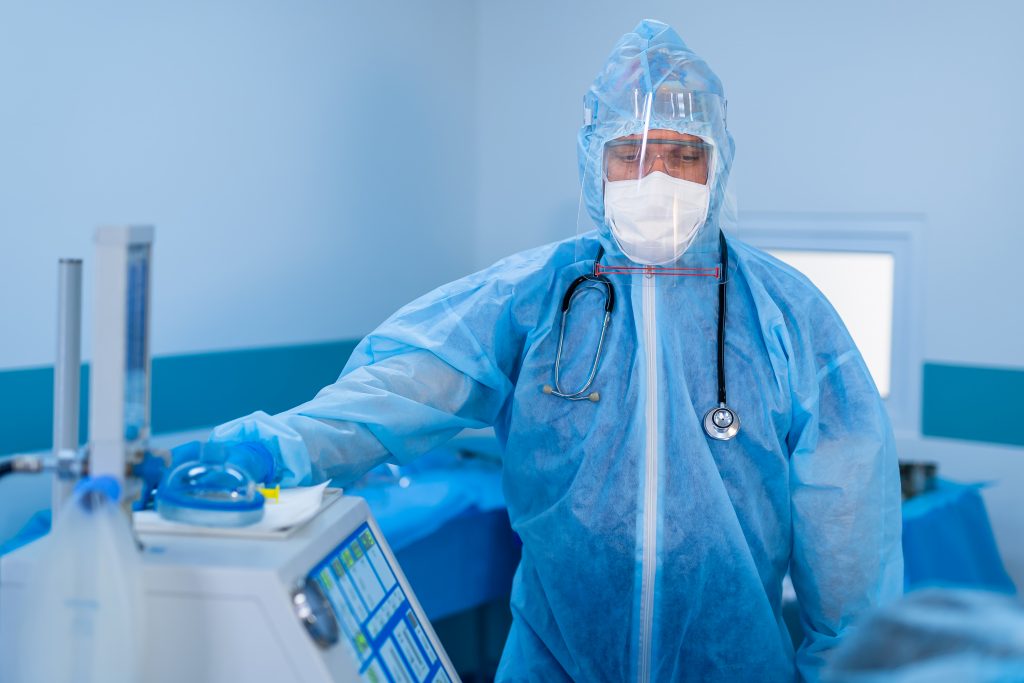The Concerns
Frequent collaboration with personnel of the health sector in procurement and supply positions is revealing a wide concern for fraudulent products, particularly from developing nations in the Asian region. Core PPE has never been more important to the health sector than in the battle against SARS CoV-2, and therefore the products have seen a rush of demand from hospitals and the likes.
Essential to personal protection, products such as masks, gowns and gloves have been produced in mass volumes by non-conformed factories in developing countries to low standards. While these perform essentially the same task as an approved product, they can often neglect highly in their quality and specifications.
False Standards
Fraudulent products will lay false claim to having met standards such as TGA Approval, and will falsely advertise laboratory certification in order to gain access to the medical sector, who are the primary volume buyer of core PPE such as masks and gowns.
This is not to say that recognised brands such as BYD (a Chinese tech company) are stereotyped under this banner of fraud. Trusted manufacturers like these are sustainable and reputable, and therefore represent a share of the manufacturing line that are on the forefront of the COVID fight.
However, a recent test by ECRI (U.S. non-profit safety organisation) found that almost 70% of the N95 masks produced by China were not in fact ‘N95’ and did not satisfy the laboratory test and thus did not meet U.S. standards for filtration efficiency. N95 being the name given to masks meeting the 95% filtration efficiency standard, one must remember. This is no different from Australia and must be paid attention to. Trusted and used distributors with reputable customer bases such as Westlab Health should be a go-to for core PPE, where fraudulent products are not sold.
Such false equipment being introduced to the health sector could have unintended consequences where the risk of infection is magnified. Core PPE should therefore be considered as a highly important purchase which is crucial to the protection of staff and the wider community – it ultimately is affecting lives – and must not be neglected.
Ethics
Most fraudulent products in today’s manufacturing world are shipped directly from the factories of China or other developing countries within Asia, particularly Malaysia. With such cheap labour in these nations, workers often work long hours for very little pay, and thus the manufacturer can afford to sell products for very little in comparison with quality, approved products.
Factories in China and Malaysia have also been known to use child labour to achieve low manufacturing costs, and to maintain maximum output. As a question of ethics, such practices are condemned by western nations in their fight for human rights. Supporting cheap Chinese or Malaysian brands which do not have a reputation on the global marketplace therefore means you are likely supporting a suburban factory which has diverted from textiles or the likes to producing disposable PPE such as synthetic gowns or face masks, who likely employ children from poor families. Such manufacturers are neither reliable nor wholly sustainable and therefore it is an ethical question of purchasing from such groups.
Procure Wisely
Due to the essential nature of PPE and the need for quality products in the medical forefront, choose brands which are reputable. Products which advertise standard compliance are not always reliable. In purchasing goods, ensure that all correct documentation is provided and verified. Such documents possess legal standing and are thus highly important. Ensure that all documentation is included when purchasing or sampling, as this is key to protection of staff and patients. Adequate documentation will include TGA approval, government approval, and supplier agreement and signed confirmation that you receive the correct product.
Give yourself no option to purchase from fraudulent suppliers, as this will ultimately impact your safety.
